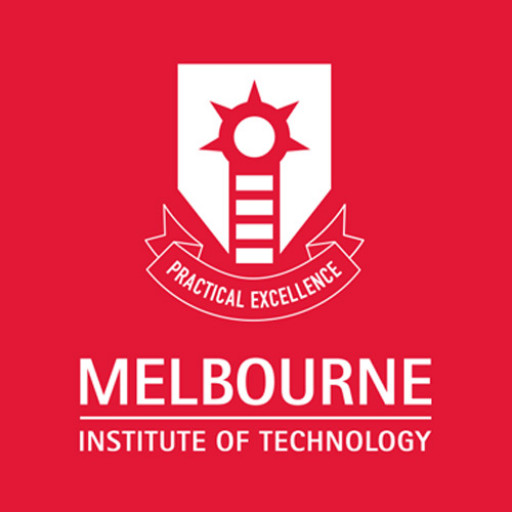The Graduate Diploma of Networking (GDNet) allows students to either update and broaden their understanding and skills, or change their area of specialisation. Students will gain commercially invaluable networking and job management experience, opening doors into a range of new career opportunities. This class aims to provide students with advanced and fundamental skills in network administration, network security and job administration. The class also emphasises the development of key employability skills like communication, cooperation and problem solving. Hands on practical work with Cisco, Microsoft along with also Riverbed networking technology can be an indispensable part of the program.
Program Overview
The Bachelor of Networking at the Melbourne Institute of Technology is designed to equip students with comprehensive skills and knowledge in the field of computer networking and information technology. This innovative program combines theoretical foundations with practical applications, preparing graduates to excel in the rapidly evolving technology sector. Throughout the course, students will explore a wide range of topics including network design, implementation, and management, as well as cybersecurity, cloud computing, and emerging networking technologies.
The curriculum emphasizes the development of critical analytical skills and technical expertise necessary for building, maintaining, and securing complex network infrastructures. Students will gain hands-on experience through laboratory exercises, industry projects, and internships, allowing them to apply learned concepts in real-world scenarios. The program also covers essential areas such as operating systems, programming fundamentals, database management, and system administration to provide a well-rounded understanding of IT environments.
In addition to technical coursework, the program focuses on developing soft skills such as teamwork, communication, and problem-solving, which are vital for leadership roles in the IT sector. Students will learn about current industry standards and best practices, ensuring they are prepared to meet the demands of modern networking environments. The program is regularly updated to incorporate the latest technological advancements and industry trends, maintaining its relevance and value in the job market.
Graduates of the Bachelor of Networking will be well-positioned for careers in various ICT roles such as network administrator, network engineer, cybersecurity analyst, systems administrator, and cloudsolutions specialist. They will possess the skills to design, implement, and manage secure and efficient network solutions for organizations across sectors including finance, healthcare, government, and technology. The program also provides a solid foundation for those wishing to pursue further studies or professional certifications in networking and cybersecurity.
At the Melbourne Institute of Technology, students benefit from state-of-the-art facilities, dedicated faculty members with industry experience, and strong links with industry partners. This environment fosters practical learning, innovation, and professional development, ensuring graduates are job-ready and capable of contributing effectively to the ongoing digital transformation in the global economy. With a focus on practical skills, industry relevance, and academic excellence, the Bachelor of Networking prepares students for a successful and dynamic career in information technology.
Bachelor of IT or equivalent. Students with out a relevant background or gaps within their level will be assessed on a case by case basis and needs to select the Non-Cognate stream.
The Melbourne Institute of Technology offers a comprehensive approach to financing studies in their Networking programs, designed to support both domestic and international students. The institute provides a variety of payment options to facilitate access to quality education without undue financial burden. Domestic students typically have access to government-funded schemes such as Commonwealth Supported Places (CSP) and HECS-HELP loans, which allow eligible students to defer tuition fees and repay them through the Australian taxation system after their income reaches a certain threshold. For international students, the institute offers competitive tuition fees, with payment plans available to spread the cost over the duration of the program. These plans may include upfront payment discounts or installment options, making it easier for students to manage their finances while pursuing their studies.
Additionally, students are encouraged to explore external sources of funding such as scholarships, grants, and sponsorships, which can significantly reduce the financial load. The Melbourne Institute of Technology regularly updates its scholarship offerings, targeting academic excellence and financial need, providing opportunities for both new and continuing students to obtain financial assistance. The institute also provides guidance on external scholarship opportunities and part-time work options, enabling students to supplement their income during their studies.
For international students, the institute assists with understanding visa requirements, including the financial documentation needed to demonstrate sufficient funds for student visas. The estimated total cost of studying a Networking program covers tuition fees, study materials, living expenses, insurance, and other personal costs. The institute advises prospective students to carefully plan their finances, considering currency exchange rates and potential unforeseen expenses.
In summary, the Melbourne Institute of Technology offers flexible and accessible financing options to support students throughout their educational journey. With a combination of government aid, financial aid programs, payment plans, scholarships, and external funding opportunities, students can find suitable ways to finance their Networking studies effectively. The institute’s dedicated student services team is available to provide personalized advice and assistance, ensuring that financial concerns do not hinder students from achieving their academic and career goals.
The Bachelor of Networking at Melbourne Institute of Technology (MIT) offers students a comprehensive education in the principles and practices of computer networking and information technology. This program is designed to equip students with the technical skills required to design, implement, and manage complex network systems across various organizations and industries. The curriculum covers core areas such as network security, cloud computing, network administration, and wireless communications, ensuring that graduates are well-versed in the latest networking technologies and industry standards.
Students enrolled in this program will have the opportunity to engage in practical learning experiences through laboratory sessions and industry placements, facilitating a real-world understanding of networking environments. The program emphasizes problem-solving, critical thinking, and technical expertise, preparing students for careers as network engineers, systems administrators, cybersecurity specialists, and other related roles in the IT sector. The coursework aligns with current industry certifications and standards, providing a pathway for students to advance professionally.
Melbourne Institute of Technology is known for its industry-focused approach and strong ties to the technology sector, which benefit students through networking opportunities, internships, and industry projects. The program also offers flexibility with options for part-time study and pathways to further education, such as postgraduate studies. Graduates of the Bachelor of Networking program at MIT are expected to possess the necessary knowledge and skills to thrive in the fast-evolving field of networking, contributing effectively to technological development and security within organizations. The program duration typically spans three years for full-time students, with internationally recognized accreditation and a focus on employability skills to meet the demands of the modern IT industry.






